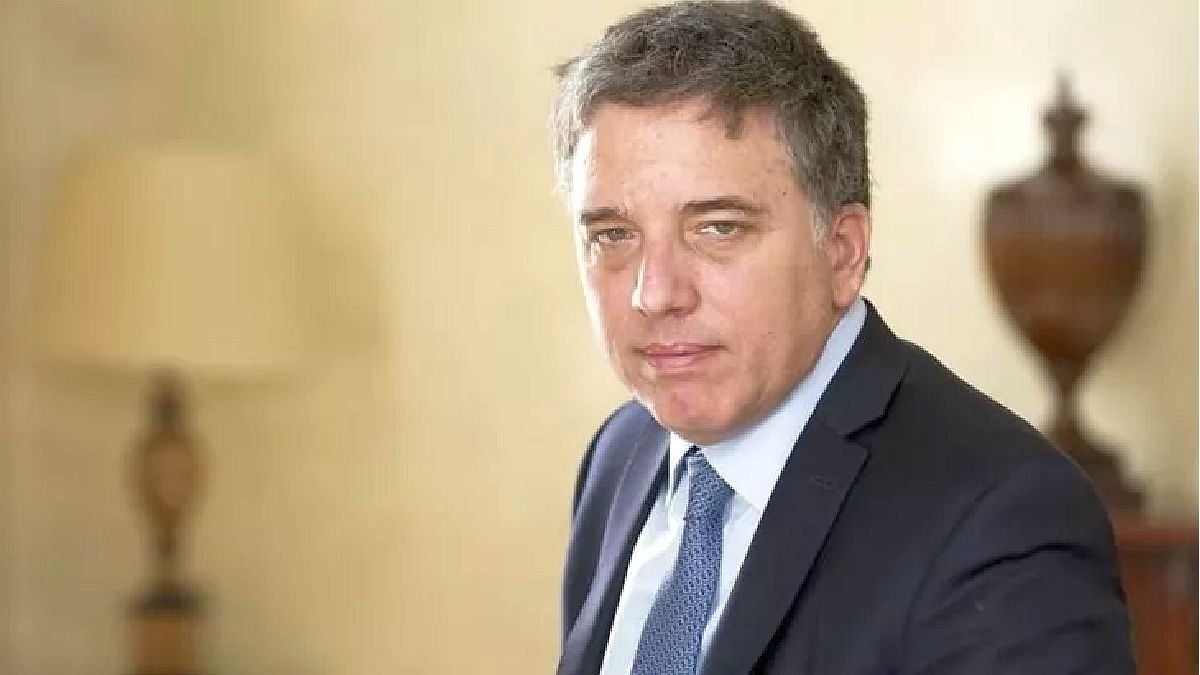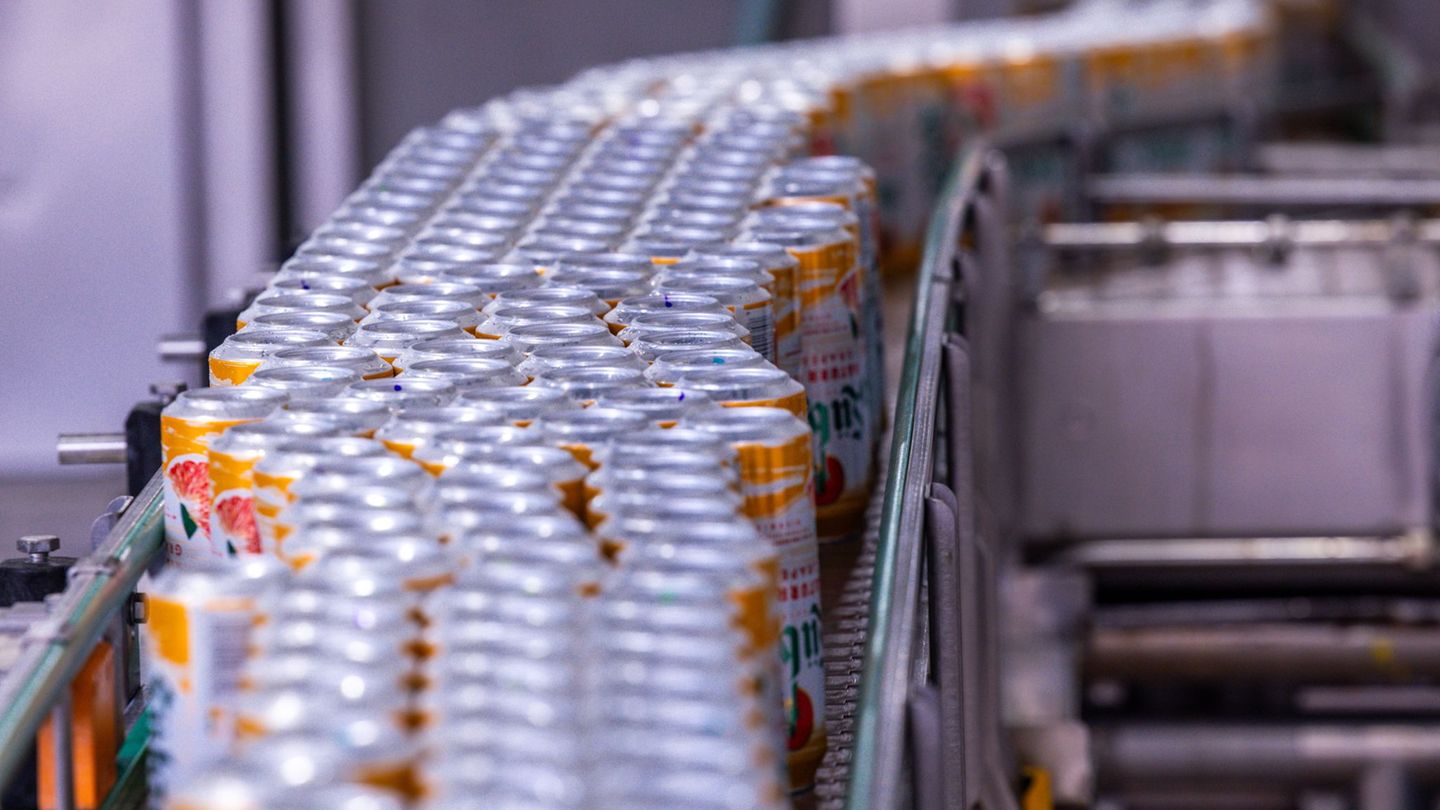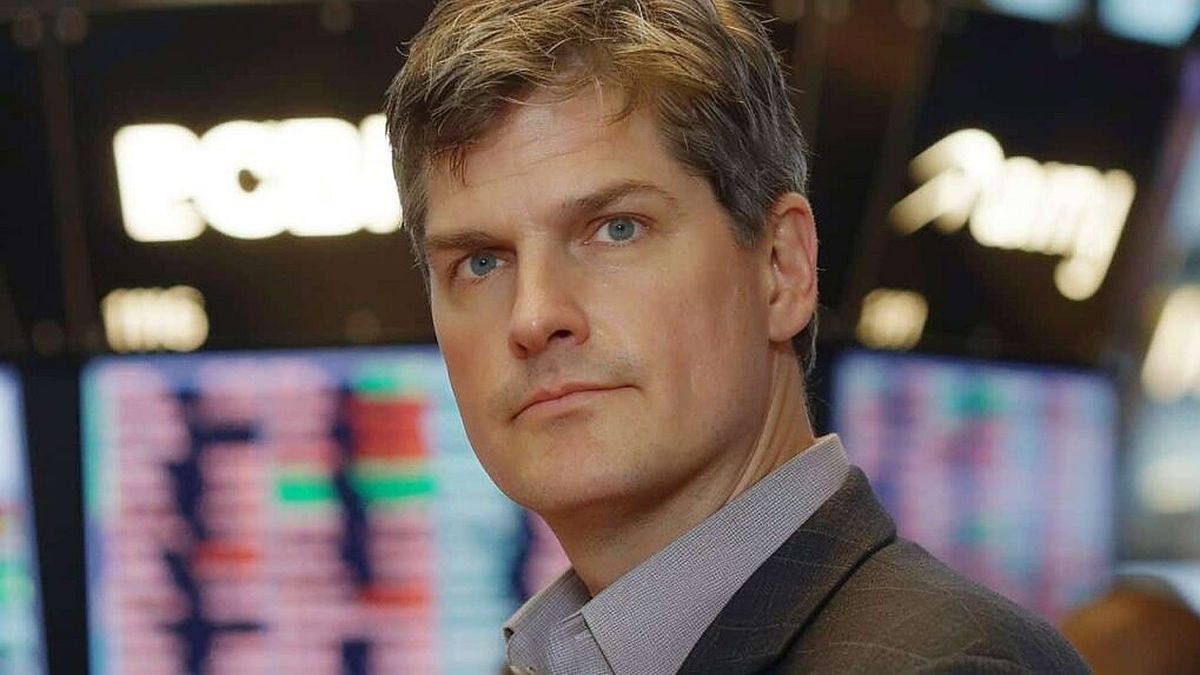The former Minister of Economy of Mauricio Macri Nicolás Dujovne published a thread of tweets about the availability of dollars from the Central Bank (BCRA) which, according to some economists in the City, seeks nothing more than to “make terrorism with depositors” and “encourage a run on deposits” in US currency. And it is that the former official said on his social network that the monetary regulator is using funds from the entities and proposed a modification of the Organic Charter of the organization, through which it intends to control the evolution of the organization’s net reserves, a variable that, today, does not officially exist, but is calculated by the market.
Although it is a thread of tweets, the most controversial words of Dujovne were the messages in which he stated that “the central bank today does not prohibit having negative net reserves” and believes that “we should change it now, given this situation of extreme emergency”. In this sense, he points out that “out of deposits in dollars of US$18,000 million, some US$11,000 are deposited” in the monetary regulator and deduces that “having negative net reserves would imply that the banks they would be ‘lend’ them to the Central”.
Sources close to the Government deny these statements to Ambit and they assure that “Dujovne now wants to sow fear in Argentine savers, but the fear is that the policies that led the country to return to the International Monetary Fund (IMF) will return.” They further add that what he does Dujovnein this case, and the market in general, usually, when talking about the net reservesa term with which they refer to the most liquid, “the market takes values from the BCRA’s annual balance and tries to deduce the current positionestimating flows and payments”, but they assure that the account they make “does not reflect the current position of the BCRA”.
What does it mean for net reserves to be negative?
The truth is that, not only the Government denies the former official, but several economists join the criticism regarding his statements. And not necessarily to deny the delicate situation of the reserves of the Central. One of them is the director of the Center for Economic Studies Scalabrini Ortiz (CESO), Andres Asiainwho points out that, even though they are negative, “what he says is wrong because, when he talks about that variable, in his calculation, he subtracts credits to the BCRAsuch as the Chinese swap, which is US$18,000 million, and which are part of these”.
Thus, he explains that, when it is said that the net reserves are negative, reference is made, precisely to the fact that the BCRA is using that credit, for example, but “no, the depositors’ money.” Asiain believes, in this sense, that Dujovne seems to be seeking, only, “generate a bank run to instill fear in savers and chaos, affecting the economic stability of the country with electoral purposes”.
Dollar deposits are high and loans are low
The same is argued by Pedro Gaite, chief economist of the Development Research Foundation (FIDE), when he explains that, although reserves may be negative “What the BCRA does is use the different lines of its reserves, in which it has other instruments in addition to deposits”. It indicates that the volume of Dollar lending to the private sector today is very low and deposits are relatively high In historical terms, beyond the fact that there may have been a certain greater outflow in the last month, which is why it denies that there could be a confiscation of the funds.
Along the same lines, the director of MyR Consultores, Fabio Rodríguez, affirms that “it is one thing to warn about the weakness of reserves in relation to the ability to intervene in the market, and another, very different, is to make terrorism with depositors”. The economist indicates that, although it is true that, at present, It is urgent to improve the availability of BCRA reservesbecause the perception of little fire power on the part of the entity is giving feedback to devaluation expectations, “today, the coverage of bank deposits is very high, in general, and one hundred percent if it is take private deposits from natural persons”.
Rodríguez explains, in this way, that “the banks do not exhibit any problem to access their liquidity in dollars protected in the BCRA for the very slight outflow of deposits that we have.”
It should be mentioned that the stock of deposits in dollars from the private sector is, up to now, about US$16.2 million, According to data from the Central and sources from the banking sector, they report that the support system for deal with the flow of savers’ withdrawals, which, although it speeds up slightly every time there are rumors of this type, they do not see that they are massive departures.
And, on the other hand, they assure that, although they are at a good level, the current volume of deposits is equivalent to approximately half of what it was in 2019, before august. “There are always some spikes when there are announcements, rumors or cabinet changes, but for now, those jumps touch the normal. In any case, there are almost no demand deposits in dollars, in relation to the volume of the system”, describes a banking source. And he agrees in pointing out that “the worst start was August 2019, when Macri lost the PASO”.
Selling smoke in an electoral context
In this sense, Asiain maintains that Dujovne is “selling smoke” to instill fear in savers and encourage a run on their deposits once again. AND denies that the BCRA is using that money. “So that it is understood. Suppose that a central bank has US$10,000 million in reserves for bank deposit reserves and not a dollar of its own reserves, then it accesses a line of credit such as the swap, and US$20,000 million is enabled, its reserves They are US$30,000 million. If you use $15bn to cover a trade deficit caused by a drought, your reserves are $15bn and your net reserves are negative $5bn, but that doesn’t mean you’ve used the deposits of savers, how he insinuates (Dujovne), but that. Those dollars weren’t touched, only those of the line of credit were used”, exemplifies Asiain.
Thus, as explained by sources close to the Government, “even following those mistaken reasoning that the former official uses to calculate the net reservesthe conclusion is another mistake because do not incorporate the possibility of financing with other sources that the BCRA has, which are not deposits from savers, such as the liquidity of US$5,000 million from the swap with China”.
Ultimately, while it is true that reserves are currently at a very low levelsince this Monday they closed at US$33,944 million, even though the BCRA has been buying dollars in the official exchange market for two days in a row and taking into account that the soybean dollar 3 and the agricultural dollar are in operation, and even considering the fact that net reserves could be in negative territory, which would be reflected in the fact that credit with China (known as swap) is being used to cover the current shortage of foreign exchange, the Savers’ dollar deposits are not at risk of being confiscated.
And it would be strange to think that a reform of the Organic Charter a concept such as net reserves would come out to regulate which, although it is frequently used in the financial world, is not an element that contemplates the BCRA balance sheet. Thus, as Gaite points out “It seems that the most necessary thing for there to be greater certainty would be for the opposition leaders to stop generating fears about deposit confiscations”.
Of course, this sentence by Gaite should also be valid for the ruling party, since we have seen several cases this year in which “friendly fire” generated noise in the market. In short, the policy should help preserve the stability and tranquility of the financial system.
Source: Ambito




